★★½
“More is less.”
 I was quite surprised to hear about Amazon taking up Joe Wright’s 2011 movie of the same name, and turning it into a TV series. There didn’t seem to be an enormous amount of point: the film was perfectly self-contained as it was, and didn’t appear to need expansion. Having now watched the eight 50-minute episodes from the first season… I’m still not sure of the point.
I was quite surprised to hear about Amazon taking up Joe Wright’s 2011 movie of the same name, and turning it into a TV series. There didn’t seem to be an enormous amount of point: the film was perfectly self-contained as it was, and didn’t appear to need expansion. Having now watched the eight 50-minute episodes from the first season… I’m still not sure of the point.
The first three are more or less a stretched-out version of the original movie, beginning with Hanna (Creed-Miles) and her adoptive father Erik Heller (Kinnaman) living completely off the grid in the middle of a European forest. They are re-located by the CIA black operation which had attempted to turn Hanna into a super-soldier, under the control of Marissa Wiegler (Enos – amusing to see her and Kinnaman on opposite sides, since they were partners on the American remake of The Killing), and from which Erick had freed her. Hanna is kidnapped, and taken to a secure facility, though escapes and has to make her way across Europe, solo, in order to be re-united with her father.
So far, so adequate, though the knock-off Chemical Brothers electro-noodly score served mostly to remind me of how good the original was, and we could certainly have used more of Hanna in action. It’s in the middle section that this completely loses its way. If you’ve seen the film, you’ll know on her trans-continental journey, the heroine is befriended by a British family and their daughter, Sophie (Barretto). Here after they part ways, Hanna takes a detour to Britain, hangs out with Sophie, and spends the middle episodes being a teenager, with all the annoying brattiness that entails. Was there anyone who wanted to see this? Certainly not me, and this very nearly went into the “Did not finish” pile as a result, because it’s extremely annoying.
The series does somewhat redeem itself over the final couple of episodes. We discover that the project from which Hanna was spawned, is still operating – and this comes as much of a shock to Marissa as anyone. Hanna and Erik head towards the complex which houses it, with the aim of liberating all the other proto-Hannas, pursued both by Wiegler and the combined forces of the military-industrial complex. However, not everyone necessarily wants to be rescued… The series ends on an open note, and Amazon recently announced there will be a second season. To be honest, you couls get caught up by skipping the first six episodes entirely, and just watching the movie, then parts 7-8.
The series does fill in much more of Hanna’s back-story, in particular how she became part of the project, and I also did like the way Wiegler’s position shifts over the course of the show. It will be interesting to see where she goes in the next season, since her position is now little less precarious than Hanna’s [and as we see at one point, Marissa has some skills of her own!]. On that basis, I’m not prepared to write this off yet, since it will now have to find fresh earth to till. Hopefully Farr does a better job there with original ideas, than of transforming his own work for the small screen.
Creator: David Farr
Star: Esme Creed-Miles, Joel Kinnaman, Mireille Enos, Rhianne Barreto





 If you took four different films, by four different directors, and edited them together into a single entity, you might end up something similar to this. Oh, make no mistake: I still enjoyed most of this. It just doesn’t feel like a coherent whole, perhaps because it is a spin-off involving some of the same characters from an earlier film, Baby. For at least three-quarters of it, however, not having seen its predecessor shouldn’t be too much of a problem.
If you took four different films, by four different directors, and edited them together into a single entity, you might end up something similar to this. Oh, make no mistake: I still enjoyed most of this. It just doesn’t feel like a coherent whole, perhaps because it is a spin-off involving some of the same characters from an earlier film, Baby. For at least three-quarters of it, however, not having seen its predecessor shouldn’t be too much of a problem.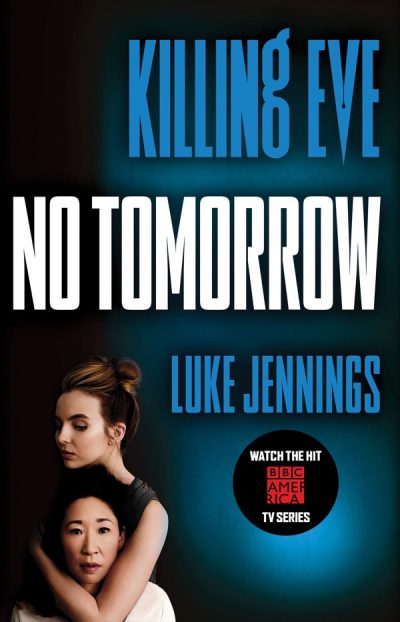 As we
As we 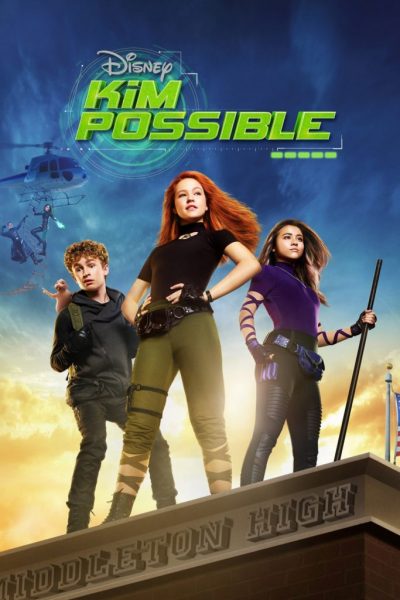 The new trend for Disney appears to be, live-action version of their beloved classic movies. This year alone, we can expect to see Dumbo, Aladdin and The Lion King, with Mulan to follow in 2020. A possible stalking horse for this was the live-action version of (somewhat) beloved TV series, Kim Possible, which ran for four seasons from 2002-07. It was pretty good, likely peaking with TV movie
The new trend for Disney appears to be, live-action version of their beloved classic movies. This year alone, we can expect to see Dumbo, Aladdin and The Lion King, with Mulan to follow in 2020. A possible stalking horse for this was the live-action version of (somewhat) beloved TV series, Kim Possible, which ran for four seasons from 2002-07. It was pretty good, likely peaking with TV movie 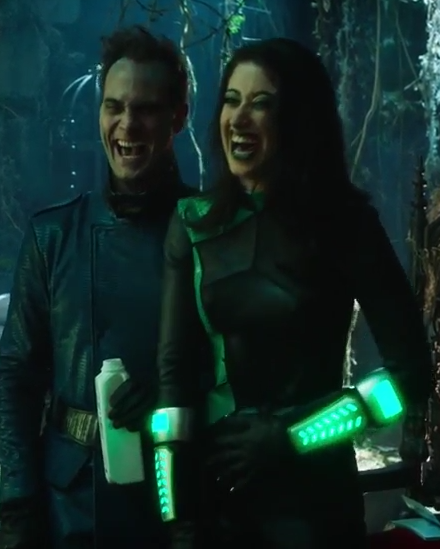 Instead, however, there’s a really horrible plot about Kim befriending Athena (Wilson), another new student. I’m sorry, when did Kim Possible become a relationship drama? Jealousy of Athena – despite her being super-annoying – causes Kim to suffer self-doubt, and fail when she is needed most… blah blah blah. Awful scripting, the portrayal of their relationship is sub-juvenile pap, which I’m sure would turn the stomach of any actual high-schooler. Worse, it goes beyond “flawed”, making the heroine weak and no longer heroic. And what’s with Kim being obsessed with joining the school’s soccer team? She was a
Instead, however, there’s a really horrible plot about Kim befriending Athena (Wilson), another new student. I’m sorry, when did Kim Possible become a relationship drama? Jealousy of Athena – despite her being super-annoying – causes Kim to suffer self-doubt, and fail when she is needed most… blah blah blah. Awful scripting, the portrayal of their relationship is sub-juvenile pap, which I’m sure would turn the stomach of any actual high-schooler. Worse, it goes beyond “flawed”, making the heroine weak and no longer heroic. And what’s with Kim being obsessed with joining the school’s soccer team? She was a  It took me about six years after reading the series opener to get back to the adventures of one of my favorite action heroines, Seeley James’ Pia Sabel; but I only wish I’d done so a lot sooner! Some of my comments in my
It took me about six years after reading the series opener to get back to the adventures of one of my favorite action heroines, Seeley James’ Pia Sabel; but I only wish I’d done so a lot sooner! Some of my comments in my 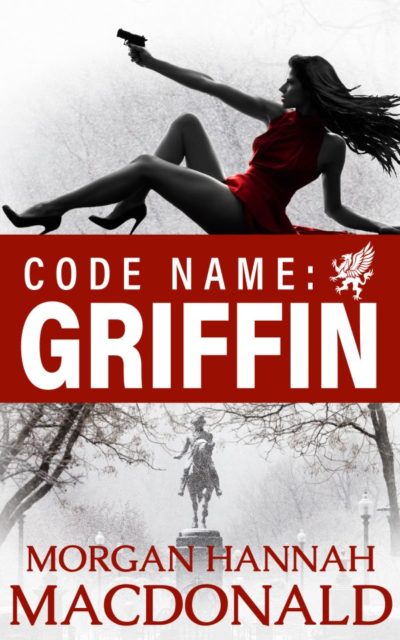 A painfully clunky mix of spy and crime thrillers, this really needs to decide which it wants to be. Alexandria Kingston – code name Griffin, in case you hadn’t guessed – was an abused child, with the good fortune to be rescued and brought up by Margaret Murphy, the head of Irish organized crime in Boston. Though to avoid Alex being targeted for leverage, she was never acknowledged to be part of the family. As an adult, Alex joined the CIA and became a top field agent, jet-setting over the globe on demand. But when her foster mother suffers a stroke, she returns to Boston to find herself in the middle of a war for control of the turf. The rival Killeen clan, sensing an opportunity, pounce. It’s up to Alex and her brothers to defend the family – and then take the battle to the Killeens.
A painfully clunky mix of spy and crime thrillers, this really needs to decide which it wants to be. Alexandria Kingston – code name Griffin, in case you hadn’t guessed – was an abused child, with the good fortune to be rescued and brought up by Margaret Murphy, the head of Irish organized crime in Boston. Though to avoid Alex being targeted for leverage, she was never acknowledged to be part of the family. As an adult, Alex joined the CIA and became a top field agent, jet-setting over the globe on demand. But when her foster mother suffers a stroke, she returns to Boston to find herself in the middle of a war for control of the turf. The rival Killeen clan, sensing an opportunity, pounce. It’s up to Alex and her brothers to defend the family – and then take the battle to the Killeens.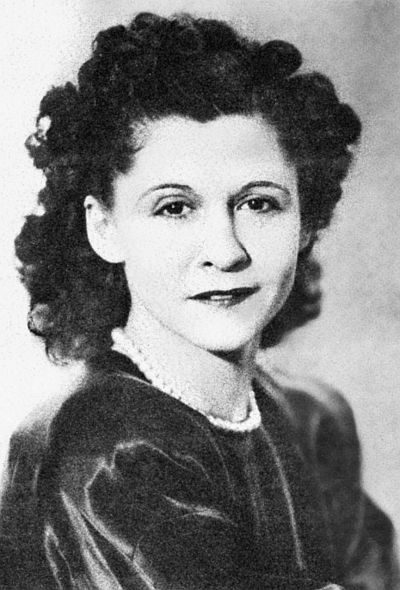 In September 1941, the author returns to Manila, the capital of the Philippines, starting work as a nightclub singer and falls in love with American GI, John Phillips. Which is unfortunate timing, because soon after, the Japanese bomb Pearl Harbor, kicking off the war in the Pacific. A hasty marriage to John follows on Christmas Eve, but Japan invades, and Claire’s husband becomes a prisoner of war. Left to fend for herself, after a period spent hiding out in the countryside, she returns to Manila, adopting the persona of Dorothy Fuentes, born in the Philippines of Italian parents. In order to help the resistance, she opens a venue, Club Tsubaki, aimed at officers of the occupying forces.
In September 1941, the author returns to Manila, the capital of the Philippines, starting work as a nightclub singer and falls in love with American GI, John Phillips. Which is unfortunate timing, because soon after, the Japanese bomb Pearl Harbor, kicking off the war in the Pacific. A hasty marriage to John follows on Christmas Eve, but Japan invades, and Claire’s husband becomes a prisoner of war. Left to fend for herself, after a period spent hiding out in the countryside, she returns to Manila, adopting the persona of Dorothy Fuentes, born in the Philippines of Italian parents. In order to help the resistance, she opens a venue, Club Tsubaki, aimed at officers of the occupying forces.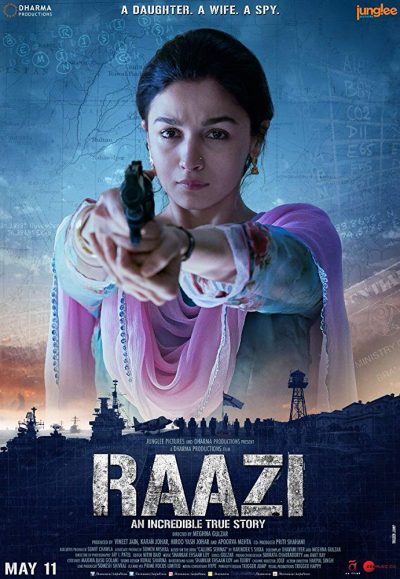
 This Indian spy thriller manages to be both remarkably restrained and human, avoiding a potentially jingoistic approach, and going for something considerably more measured. It takes place just before the war between India and Pakistan in 1971, when Indian agent Hidayat Khan is pretending to give information to Pakistan. In order to get close to their top brass, he convinces his daughter, Sehmat (Bhatt), to enter an arranged marriage to Iqbal Syed (Ahlawat), an officer whose father (Sharma) is a Brigadier in the Pakistani army. After being trained by senior intelligence officer Khalid Mir (Kaushal), she goes to join her new husband, and begins operations as a spy inside the Brigadier’s household.
This Indian spy thriller manages to be both remarkably restrained and human, avoiding a potentially jingoistic approach, and going for something considerably more measured. It takes place just before the war between India and Pakistan in 1971, when Indian agent Hidayat Khan is pretending to give information to Pakistan. In order to get close to their top brass, he convinces his daughter, Sehmat (Bhatt), to enter an arranged marriage to Iqbal Syed (Ahlawat), an officer whose father (Sharma) is a Brigadier in the Pakistani army. After being trained by senior intelligence officer Khalid Mir (Kaushal), she goes to join her new husband, and begins operations as a spy inside the Brigadier’s household. briskly functional rather than particularly memorable: by which I mean, I read the book in fairly short order… only to discover, when I finished it, that I didn’t remember very much about it. Not even the heroine’s name. Mallory? Mindy? Miley? Definitely an M word… Ah, yes: Melody Cale. She’s an agent for the Geirty Solutional Diversity Group, a murky government organization – also known as the Get Shit Done Group – who “do what the CIA couldn’t… without having politicians, or reporters, looking over their shoulders.”
briskly functional rather than particularly memorable: by which I mean, I read the book in fairly short order… only to discover, when I finished it, that I didn’t remember very much about it. Not even the heroine’s name. Mallory? Mindy? Miley? Definitely an M word… Ah, yes: Melody Cale. She’s an agent for the Geirty Solutional Diversity Group, a murky government organization – also known as the Get Shit Done Group – who “do what the CIA couldn’t… without having politicians, or reporters, looking over their shoulders.”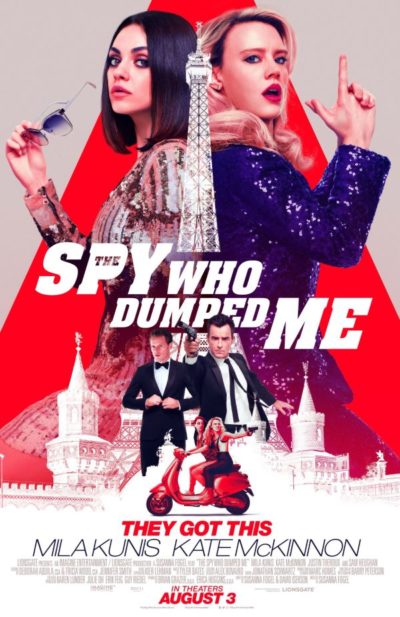 A breezy yet slightly odd mix of comedy and ultra-violence, this drops Audrey (Kunis) and her gal pal Morgan (McKinnon) into the middle of a spy caper, after Audrey’s boyfriend Drew (Theroux) dumps her, only for Audrey to discover he was a CIA spy. He tells her she must deliver a statuette to a Viennese cafe, or the world will be in great peril. After the peril rapidly arrives, heavily-armed, she and Morgan head off to Europe, with no idea of who they can trust. In hot pursuit – whether for reasons good or bad – are MI6 agent Sebastian Henshaw (Heughan), and the agents of “Highland”, a criminal syndicate also very keen to get their hands on the statuette and what it contains. A whirlwind tour of European cities follows, including Budapest, Paris, Amsterdam and Berlin.
A breezy yet slightly odd mix of comedy and ultra-violence, this drops Audrey (Kunis) and her gal pal Morgan (McKinnon) into the middle of a spy caper, after Audrey’s boyfriend Drew (Theroux) dumps her, only for Audrey to discover he was a CIA spy. He tells her she must deliver a statuette to a Viennese cafe, or the world will be in great peril. After the peril rapidly arrives, heavily-armed, she and Morgan head off to Europe, with no idea of who they can trust. In hot pursuit – whether for reasons good or bad – are MI6 agent Sebastian Henshaw (Heughan), and the agents of “Highland”, a criminal syndicate also very keen to get their hands on the statuette and what it contains. A whirlwind tour of European cities follows, including Budapest, Paris, Amsterdam and Berlin.